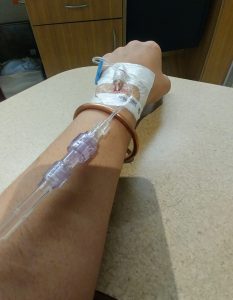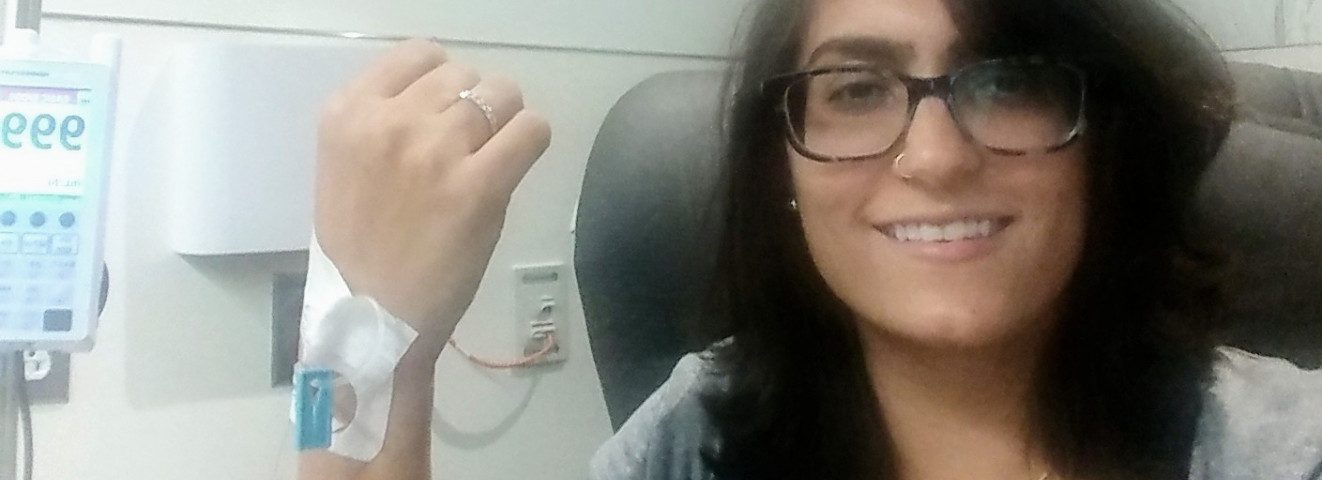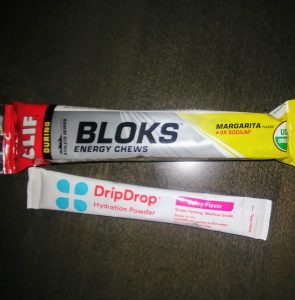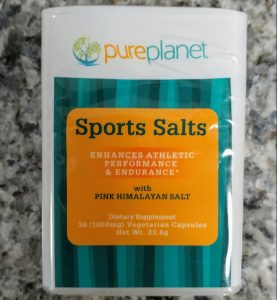We all know the feeling of waking up to our legs cramping, and our voices barely squeezing out a faint peep as an intense lightheadedness sets in. These symptoms, among others, are classic indications of dehydration. And with summer now in full swing, it is high time we talk about the importance of hydration.
So, why does dehydration happen and why is it so important to stay hydrated as an IBD patient? According to the Mayo Clinic, “dehydration occurs when you use or lose more fluid than you take in, and your body doesn’t have enough water and other fluids to carry out its normal functions.”
Dehydration comes into play for IBD patients because many of us tend to have diarrhea, which can cause a loss of electrolytes. This state is further exacerbated if you are in the midst of a flare-up or stomach virus. Another complicating factor is surgery. If you’ve had your colon removed, live with an ileostomy, or have short gut syndrome, surgical changes can reduce your ability to absorb fluids and electrolytes.
The challenge of hydration is to maintain fluid levels despite sweating in the sweltering summer heat. But perhaps more importantly, hydration weighs in on quality of life as well. Just like plants need water and sunlight to survive, we need electrolytes to stay afloat. I shrivel up into a prune without proper hydration. By maintaining my hydration levels, I feel like baby Mario did when he ate a mushroom and became big Mario in “Super Mario Bros.” I can concentrate better, listen better, and be “every bit of me” better. I can circumvent the dizziness, the fatigue, and the more complex consequences, including bowel obstructions, heat strokes, urinary tract infections, and kidney stones.
So, how do you rehydrate your body? Following are some things I do to stay hydrated:
- Drink more water, vitaminwater, Gatorade, Pedialyte, etc.
- Eat more binding foods (rice, bananas, peanut butter, etc.) if diarrhea is an issue.
- Create your own oral rehydration cocktail of salt, sugar, and other electrolytes.
- Mix electrolyte packets such as DripDrop or nuun in water.
- Eat Sports Salts or Clif Bloks hydration cubes. These are for athletes but work well for me. Heck, the way we lose water, we may as well be IBD wrestlers!
(Photos by Tina Aswani Omprakash)
*Please note that these are my personal recommendations. Please talk to your doctor to decide what’s right for your body.
I’ve had, unfortunately, many run-ins with dehydration since my ileostomy. Two summers ago, I was incessantly peeing because I had a post-surgical inclusion cyst sitting on top of my bladder. Staying hydrated was next to impossible until I had surgery to drain the cyst and received pelvic floor physical therapy. In the meantime, I visited my hospital for intravenous hydration once a week.

Then, just a few weeks ago, when summer had just ushered in its first vicious heat wave, I had multiple bowel obstructions back-to-back, and fecal impaction due to dehydration. And lo and behold, I am now again frequenting my hospital’s cancer center for weekly intravenous hydration infusions. In between these appointments, I keep myself afloat by reverting to my handy-dandy rehydration tools listed above.
Chronic illness is tough enough, and hot, humid summers can often make aspects of our diseases much more difficult to bear. So why not make life easier by staying on top of our hydration? It may be work, but it is worth it to own your Crohn’s, own your ostomy, and lead a fuller and more satisfying life by managing the challenges around hydration.
Follow my story on my blog, www.ownyourcrohns.com, and on Facebook, Twitter, and Instagram: @ownyourcrohns.
***
Note: IBD News Today is strictly a news and information website about the disease. It does not provide medical advice, diagnosis, or treatment. This content is not intended to be a substitute for professional medical advice, diagnosis, or treatment. Always seek the advice of your physician or other qualified health providers with any questions you may have regarding a medical condition. Never disregard professional medical advice or delay in seeking it because of something you have read on this website. The opinions expressed in this column are not those of IBD News Today, or its parent company, BioNews Services, and are intended to spark discussion about issues pertaining to IBD.



